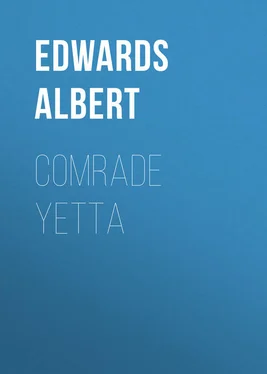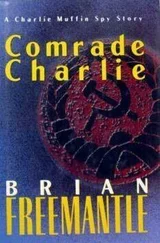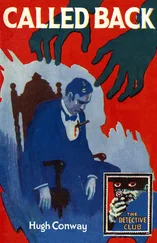Albert Edwards - Comrade Yetta
Здесь есть возможность читать онлайн «Albert Edwards - Comrade Yetta» — ознакомительный отрывок электронной книги совершенно бесплатно, а после прочтения отрывка купить полную версию. В некоторых случаях можно слушать аудио, скачать через торрент в формате fb2 и присутствует краткое содержание. Жанр: foreign_antique, foreign_prose, foreign_sf, на английском языке. Описание произведения, (предисловие) а так же отзывы посетителей доступны на портале библиотеки ЛибКат.
- Название:Comrade Yetta
- Автор:
- Жанр:
- Год:неизвестен
- ISBN:нет данных
- Рейтинг книги:4 / 5. Голосов: 1
-
Избранное:Добавить в избранное
- Отзывы:
-
Ваша оценка:
- 80
- 1
- 2
- 3
- 4
- 5
Comrade Yetta: краткое содержание, описание и аннотация
Предлагаем к чтению аннотацию, описание, краткое содержание или предисловие (зависит от того, что написал сам автор книги «Comrade Yetta»). Если вы не нашли необходимую информацию о книге — напишите в комментариях, мы постараемся отыскать её.
Comrade Yetta — читать онлайн ознакомительный отрывок
Ниже представлен текст книги, разбитый по страницам. Система сохранения места последней прочитанной страницы, позволяет с удобством читать онлайн бесплатно книгу «Comrade Yetta», без необходимости каждый раз заново искать на чём Вы остановились. Поставьте закладку, и сможете в любой момент перейти на страницу, на которой закончили чтение.
Интервал:
Закладка:
"You know very well that I can't talk with "Saph" on the job – she hates me. I'd like to talk this over with you."
"All right," she said, shaking his arm to cheer him up. "But don't be quite so grumpy, just because I called you a sentimentalist."
Over the marble-topped table in the café, he told her that a letter had come inviting him to join an expedition, organized by the French Government, to excavate some Haktite ruins in Persia. From the point of view of an Assyriologist it was a flattering offer; they had selected him as the most eminent American in that department. But it would be a three or four years' undertaking in one of the most inaccessible corners of the globe. They would probably get mail no oftener than two or three times a year. And after all he was more interested in the thoughts of live men than in mummies and cuneiform inscriptions. It would stop his work on philosophy.
"In fact, Mabel," he ended, "there is only one thing that makes me think of accepting. I can't stand this. I don't want to bring up the forbidden subject. But I'm tired – worn out – with hiding it. If I stay here in New York, I'm sure to – bore you."
He tried to smile lightly, but it was not much better than the smile with which we ask the dentist if it is going to hurt. Mabel dug about in her café parfait for a moment without replying. She understood all the things he had not said. At last she did the unselfish, the kindly thing, which, if she had been a man, she would have done long before. She sent him away.
"It looks to me like a great opportunity. It isn't only an honor for past achievements, but a chance for new and greater ones. Sometimes I poke fun at your Synthetic Philosophy, but seriously I don't think it is as big a thing as your Assyriology. Whether you like it or not the Fates have given you a talent for that. Your wanting to do something else – write philosophy – always seems to me like a great violinist who wants to be a jockey or chauffeur. You're really at the very top as an Assyriologist. It's not only me – but most of your friends – think you have more talent for that. I think you'd best accept it."
Longman swallowed his medicine like a man. A few minutes later he left Mabel at her door.
She found "Saph" stretched out à la Mme. Récamier on the dull green Empire sofa.
"Will you never get out of the habit of staying to sweep up after the ball?" she asked languidly.
"I haven't been sweeping up," Mabel replied; "I've been over at the Lafayette with Walter. Now don't begin to sulk," she went on; "he's been telling me great news. The French Government has asked him to go on one of their expeditions to Central Asia. He's going."
"Goody," Eleanor cried, jumping up. "I'm glad!"
"I'm not," Mabel said; "I'll miss him no end."
"Mabel Train, I believe you're in love with that man."
"No, I'm not. And I'm half sorry I'm not. I'm tired, done up. Good night."
"Don't you want some fudge? – it turned out fine."
"No. Goodnight."
Mabel did not exactly bang her bedroom door, but she certainly shut it decisively, and for more than an hour sat by her window, watching the ceaseless movement in the Square. Once she saw Longman walk under an arc-light. His head was bent, his hands deep in his pockets. Although the sight of him left her quite cold, her eyes filled with tears as they had not done for years. It was just because the sight of him left her cold that tears came.
CHAPTER IX
YETTA ENLISTS
Yetta did not fall asleep readily after the ball. Her mind was a turmoil. If she tried to fix her attention on this question of Liberty which had stirred her so deeply, she was suddenly thrown into confusion by a memory of the cold fear which Harry Klein's hard eyes and brutal grip had caused her. She felt that she must think out her relationship with him clearly if she was ever to be free from fear, but again this problem would be disturbed by the thought of her wonderful new friends.
Sleep when it came at last was so heavy that she did not wake at the accustomed hour in the morning. When Mrs. Goldstein came into the bedroom to rouse her, she was startled by the sight of the new hat and white shoes, which Yetta had been too excited the night before to hide.
The first thing Yetta knew, there was a great commotion in her room. Her uncle and aunt, neither more than half dressed, were accusing her loudly of her crime and heaping maledictions on her head. It was several minutes before Yetta fully awoke to the situation. And when she did, a strange transformation had taken place within her; she was no longer afraid of the sorry couple.
"Yes," she said, sitting up in bed, drawing the blanket about her shoulders, "I went to a ball. If you don't like it, I'll find some other place to live."
The garrulous old couple fell silent. Goldstein's resentment against his daughter Rachel was fully as much because she had stopped bringing him money to get drunk on as because she had "gone wrong." After a minute's amazement at Yetta's sudden display of independence, they began a sing-song duet about ingratitude. Had they not done everything for her? Taken her in when she was a penniless orphan? Clothed and fed and sheltered her?
"And haven't I paid you all my wages for four years?" she replied. "Go away. I want to get dressed."
At the shop Yetta found that the story of her speech had been spread by one of the girls at the second table who had been at the ball. Fortunately this girl had not witnessed the scene with Harry Klein. Yetta found the women at her table discussing the matter in whispers when she arrived. In the moment before the motor started the day's work, the bovine Mrs. Levy told her that she was a fool.
"You've got a good job," she said. "You'll make trouble with your bread and butter. You're a fool."
"Better be careful," the cheerful Mrs. Weinstein advised. "Don't I know? My husband's a union man. Of course the unions are right, but they make trouble."
"It ain't no use," the sad and worn Mrs. Cohen coughed from the foot of the table. "There ain't nothing that'll do any good. Women ain't got no chance."
The motor began with a roar.
It is a strange fact of life, how sometimes a sudden light will be turned on a familiar environment, making it all seem new and entirely different from what we are accustomed to. Four years Yetta had worked in that shop. She had accepted it all as an inevitability, which no more admitted change or "reform" than the courses of the stars. The speeches to which she had listened made it suddenly appear in its true human aspect. It was no longer a thing unalterable, it was an invention of human greed. It was a laboratory where, instead of base metals, the blood of women and young girls was transmuted into gold. The alchemists had failed to find the Philosopher's Stone. The sweat-shop was a modern substitute. It was a contrivance by which such priceless things as youth and health and the hope of the next generation could be coined into good and lawful money of the realm.
Her nimble fingers flying subconsciously at the terrible speed through the accustomed motions, Yetta saw all the grim reality of the shop as never before. She saw the broken door to the shamefully filthy toilet, saw the closed, unwashed windows, which meant vitiated, tuberculosis-laden air, saw the backs of the women bent into unhealthy attitudes, saw the strained look in their eyes. More vaguely she saw a vision of the might-be life of these women, – clean homes and happy children. And behind her she felt the existence of the "office", where Jake Goldfogle sat and watched them through his spying window, and contrived new fines. And even more clearly than when she had made her speech, she saw her own function in this infernal scheme of greed, saw herself a lieutenant of the slave-driver behind her. She wondered if the other women hated her as she deserved to be hated. But habit is a hard thing to break, and her fingers sped on as of old.
Читать дальшеИнтервал:
Закладка:
Похожие книги на «Comrade Yetta»
Представляем Вашему вниманию похожие книги на «Comrade Yetta» списком для выбора. Мы отобрали схожую по названию и смыслу литературу в надежде предоставить читателям больше вариантов отыскать новые, интересные, ещё непрочитанные произведения.
Обсуждение, отзывы о книге «Comrade Yetta» и просто собственные мнения читателей. Оставьте ваши комментарии, напишите, что Вы думаете о произведении, его смысле или главных героях. Укажите что конкретно понравилось, а что нет, и почему Вы так считаете.












